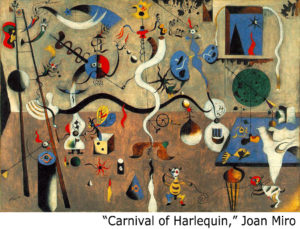The Rationale of Irrational Decisions: Considering Emotional Needs
By B. Kim Barnes, Barnes & Conti CEO
 Life would be so much easier for leaders, managers, parents, friends, politicians, if only human beings behaved in predictable ways based on facts, logic, rational thought processes, or even fulfillment of practical needs. Sadly, for those of us who are required or inclined to influence others to act in ways that are good for them, for the team, for the organization, the community, the nation, or the world, it’s just not so simple. Whether you’re trying to get your children to brush their teeth, your spouse or partner to exercise, your team members to collaborate, your company to focus on greater diversity, or your peers to vote in what you consider their best interests, you are bound to be disappointed if you focus only on their intellect or even on vested interests — what you believe they have to gain or to lose.
Life would be so much easier for leaders, managers, parents, friends, politicians, if only human beings behaved in predictable ways based on facts, logic, rational thought processes, or even fulfillment of practical needs. Sadly, for those of us who are required or inclined to influence others to act in ways that are good for them, for the team, for the organization, the community, the nation, or the world, it’s just not so simple. Whether you’re trying to get your children to brush their teeth, your spouse or partner to exercise, your team members to collaborate, your company to focus on greater diversity, or your peers to vote in what you consider their best interests, you are bound to be disappointed if you focus only on their intellect or even on vested interests — what you believe they have to gain or to lose.
We continue to learn that people are often moved toward seemingly irrational decisions by values they hold dear and, perhaps even more strongly, by the pull of emotional needs. As influencers, we can’t afford to ignore them and can benefit by considering how to align with them. Something that doesn’t make rational sense to us may meet a deep need or fulfill an important desire for someone else.
The strong emotional needs that we humans experience are just as powerful — or even more so — as any objective proof or brilliant case that another person or institution might make. Ancient philosophers, psychologists such as Abraham Maslow and, more recently, behavioral economists like Dan Ariely and Daniel Kahneman have identified needs such as:
- Belonging: Being part of and associated with a specific group, tribe, or community
- Control/power: Having autonomy over one’s life, being free to make important choices
- Confirmation: Having one’s beliefs and opinions supported and verified
- Respect: Experiencing the acceptance and esteem of important others
- Well-being/safety: Feeling protected, secure and confident about one’s life and that of loved ones
- Meaning: Being able to make a positive contribution to one’s profession or community through one’s work or life
- Affection: Being loved and cared for by others.
We all experience these needs, though we may not fulfill them in the same way as those we wish to influence. One of the most important skills an influencer can develop is the ability to identify with and imagine how things could appear from the point of view of the other person or group. In preparing for an important influence opportunity, consider the following questions:
- If I were that other person, what would I have to gain or lose from the outcome of this choice or decision in a practical way? What’s in it for me or for something or someone I care about and identify with?
- If I were that other person, what values or beliefs of mine are relevant to this choice or decision? How might the desired outcome either support or challenge them?
- If I were that other person, how might I feel about being part of making the choice I’m being asked to make? Would that fulfill an emotional need I have or threaten it?
- And finally, if I were that person, what sources of facts and objective data would I trust and mistrust? What would help me to believe in the reality of the case being made?
By taking the answers to these questions into account, we may find an approach that fits on the other’s mental map. I’m not suggesting that we be untruthful or avoid asking others to make difficult decisions. I do believe that if we take the time to consider in a nonjudgmental and respectful way the complexities of the human mind and heart we will find new ways to connect and to help others — and ourselves — move toward healthy, wise, and responsible choices.

Leave a Reply
You must be logged in to post a comment.